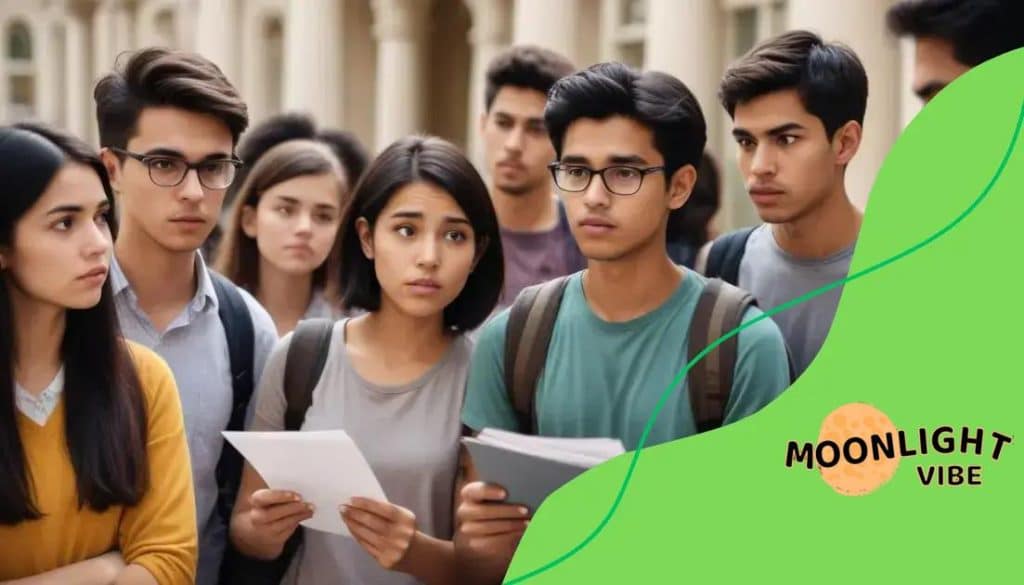International Student Visa Revocations 2025

Anúncios

Navigating life as an international student comes with exciting opportunities and serious responsibilities. One of the most critical, and often misunderstood, challenges is the International Student Visa Revocation risk.
Anúncios
A revoked visa can derail academic goals, limit mobility, and affect future immigration applications. Understanding how to avoid this risk is key to a successful experience abroad.
Let’s explore what puts your visa in jeopardy and how to protect your student status.
Understanding the Real Risk Behind International Student Visa Revocation
For thousands of international students each year, studying abroad is a dream that requires careful planning and adherence to immigration rules.
Yet, even with the best intentions, many face the unexpected and serious threat of International Student Visa Revocation.
Anúncios
Understanding this risk is essential not only to maintain legal status but also to protect your academic and personal future in a foreign country.
Recent reports have shown a growing number of international students experiencing visa revocation due to administrative oversights, policy shifts, or even simple miscommunications between universities and immigration authorities.
In some cases, students from top-tier institutions were forced to leave the country without being given a clear explanation or a fair opportunity to respond.
This underscores the importance of knowing how the International Student Visa Revocation process works and what actions can lead to it.
What Factors Can Trigger International Student Visa Revocation?
Many international students are surprised to learn that visa revocation is not always tied to criminal activity or intentional wrongdoing. Several academic, legal, and procedural missteps can trigger the process, including:
Failure to Maintain Full-Time Enrollment
Dropping below the minimum credit hour requirement, even temporarily, can put your visa in jeopardy.
Immigration authorities require students to be enrolled full-time at all times unless they have formal approval for a reduced course load due to valid reasons such as health or academic accommodations.
Academic Performance Decline
Consistently poor grades or failure to make academic progress can lead schools to report your situation to immigration.
Authorities may interpret this as a violation of visa conditions, especially if you are not meeting the standards outlined in your academic program.
Providing False or Incomplete Information
Inaccurate details on visa or school documentation can be grounds for immediate International Student Visa Revocation. Even unintentional errors on forms can have serious consequences if not corrected promptly.
Legal or Behavioral Violations
Even minor legal infractions, such as public disturbances or traffic violations, may trigger reviews of your visa status. More serious offenses like theft, drug use, or violent behavior almost always result in visa revocation.
Unapproved Employment
Many students are unaware of the strict limits on work hours and job types allowed under student visas. Unauthorized employment, whether on or off campus, is one of the fastest ways to lose your visa status.
These issues are becoming increasingly common as immigration authorities adopt stricter enforcement and faster digital tracking systems, often acting on university reports or irregularities flagged during random audits.
How to Monitor Your Visa Status and Stay Ahead
Avoiding International Student Visa Revocation starts with awareness. You need to be proactive about staying informed and in compliance.
- Check school communications regularly to ensure you don’t miss any updates about your enrollment, visa status, or reporting deadlines.
- Schedule periodic meetings with your international student advisor to review your current standing and get advice on any personal or academic changes that might affect your visa.
- Keep documentation organized, including your I-20 or DS-2019, proof of full-time enrollment, grades, and any communication from immigration or your university.
Some universities now conduct annual or semi-annual visa compliance reviews and may report inconsistencies even without notifying the student first. This makes it even more critical to stay informed and engaged.
Why Awareness Matters Now More Than Ever
With recent data showing a rise in student visa revocations, particularly among students of Asian descent and those in STEM fields, it is clear that enforcement is intensifying.
In many cases, revocations happened without hearings, appeals, or full transparency, leaving students devastated and unprepared.
That is why understanding the real risks behind International Student Visa Revocation is not optional—it is your first step toward protecting your right to study, live, and thrive in a new country.
In the sections that follow, we will explore how to prevent revocation, legal steps to take if it happens, and how to rebuild your path forward.
Practical Steps to Protect Yourself from International Student Visa Revocation

Preventing International Student Visa Revocation begins com proactive actions and daily attention to detail. Immigration compliance is not limited to paperwork or visa stamps.
It is an ongoing commitment that affects every aspect of your student life, from course loads to legal behavior.
Many students facing visa revocation had no intention of breaking rules but lacked the guidance or knowledge to prevent avoidable violations.
Following a few clear strategies can help you protect your visa status and continue your education without interruption.
Stay Informed About Changing Immigration Policies
Immigration laws evolve constantly. What was acceptable last semester may now require new documentation or reporting. Failing to stay informed can lead to unintentional violations that result in International Student Visa Revocation.
Stay Connected with University Resources
- Visit your university’s international student portal frequently for policy updates.
- Attend visa compliance workshops and orientation programs, even after your first year.
- Subscribe to university newsletters or government immigration alerts that provide updates on changes that may affect your visa.
Being informed helps you act in advance, request the right permissions, and avoid last-minute surprises.
Maintain Full-Time Enrollment Without Exceptions
Maintaining full-time student status is a foundational requirement of nearly every student visa program. Even a temporary drop in credits can place you in violation of visa terms.
Monitor Your Credit Load and Academic Standing
- Check that your schedule meets the minimum full-time requirement every semester.
- Speak with an academic advisor before dropping a class or withdrawing from a course.
- File any necessary forms for medical or academic exceptions through the proper university channels.
Some students have lost their visa status due to a misunderstanding of what qualifies as full-time. Confirm requirements with your international student office every term.
Address Problems Early and Ask for Help
The earlier you identify a potential problem, the easier it is to correct. Whether you’re struggling academically, dealing with personal stress, or unsure about visa details, seeking help quickly can prevent small issues from escalating into visa violations.
Know Where to Find Support on Campus
- Contact the international student office for immigration questions or documentation needs.
- Use mental health and academic counseling services if you’re overwhelmed or falling behind.
- Join student associations or cultural clubs that offer peer support and practical advice.
Universities often report issues to immigration when students go silent or fail to act. Staying engaged and communicating with support teams shows responsibility and can lead to solutions that protect your status.
Avoid Assumptions About What Is Allowed
Many students mistakenly assume that certain actions are permitted simply because others are doing them or because they seem minor.
This can include working off-campus, traveling during breaks, or changing majors without approval. Such assumptions can lead directly to International Student Visa Revocation.
Always verify rules before making changes to your academic plan, work schedule, or visa conditions. Universities are required to report violations, even if they result from misunderstandings.
Taking these steps seriously is more than a recommendation.
In today’s enforcement climate, protecting yourself against International Student Visa Revocation requires awareness, consistency, and a willingness to seek guidance whenever needed.
Being proactive today can save you from serious consequences tomorrow.
Legal Options for Students After International Student Visa Revocation
Facing International Student Visa Revocation can be overwhelming, especially for students who have built their lives and academic goals abroad.
The sudden loss of visa status often comes with little warning and limited clarity, leaving students unsure of their rights or next steps. While the situation is serious, it is not without hope.
There are legal pathways that can help you recover your status, adjust to a new visa category, or appeal the decision.
Knowing these legal options is essential if you want to act quickly and protect your future.
Many students who had their visas revoked reported feeling uninformed or unsupported, which highlights the importance of timely guidance and professional assistance.
Reinstatement of Student Status
Reinstatement is one of the most direct legal remedies available to students who lost their visa due to unintentional violations or valid personal circumstances. This option allows you to return to lawful F-1 or J-1 status without leaving the country.
Requirements for Reinstatement
- You must file the request as soon as possible after the International Student Visa Revocation.
- You must demonstrate that the violation was due to circumstances beyond your control, such as illness or a mistake by the institution.
- You must still be enrolled or accepted at an approved institution and prove that you intend to resume your studies.
The process involves submitting a reinstatement application to immigration authorities along with supporting documentation.
Because the outcome depends heavily on the quality and clarity of your explanation, it is strongly recommended to work with an immigration attorney.
Changing Visa Status to Another Category
If reinstatement is not feasible, changing to another nonimmigrant visa category may be an alternative. This may apply in cases where the student has secured a job offer or is eligible for a different visa classification.
When and How to Change Status
- You may apply to switch from a student visa to a work-based visa, such as H-1B, if eligible.
- In some cases, changing to a dependent or humanitarian visa might be possible.
- You must file the change of status application before leaving the country and while still in a lawful grace period.
This path can be complex and often requires employer sponsorship or proof of financial stability. Legal assistance is essential to navigate the technical requirements and prevent delays or rejections.
Appealing a Visa Revocation Decision
Although appeals are not always available or successful, some students may qualify to challenge the revocation if they believe it was issued in error or without due process.
The Appeal Process Explained
- Appeals are typically submitted to a higher immigration authority or through administrative review within the consular system.
- You must present a well-documented case explaining why the revocation was unjustified.
- Legal representation is crucial, as success depends on both legal merit and procedural accuracy.
Recent cases show that visa revocations have sometimes occurred without proper notice, hearings, or transparency. While these situations are difficult, appeals may lead to reinstatement or open the door to legal remedies if handled professionally.
Taking Action After Revocation
No matter which legal route you pursue, acting quickly is critical. The longer you wait, the fewer options may be available.
Gather all relevant documents, consult your international student office, and seek legal counsel with experience in student immigration cases.
Understanding your rights and the legal frameworks around International Student Visa Revocation is the key to protecting your future in your host country.
Many students who faced revocation were able to continue their academic or professional path by taking immediate, informed action.
Whether through reinstatement, status adjustment, or appeal, knowing your legal options can give you the clarity and confidence needed to move forward after a setback.
Long-Term Impact of International Student Visa Revocation on Education and Travel
The consequences of International Student Visa Revocation extend far beyond the immediate disruption of academic life.
For many international students, a revoked visa marks the beginning of a cascade of complications that can derail not only their current studies but also their future educational and professional prospects abroad.
Recent reports highlight that students whose visas were revoked faced significant delays in continuing their studies and were often blocked from re-entering the country, even after resolving the original issue.
These consequences can last for years and have a direct effect on career development and global mobility.
Educational Setbacks After Visa Revocation
Losing your visa status usually means being forced to stop attending classes immediately. This interruption can delay graduation, impact academic records, and create bureaucratic complications when trying to resume studies in the future.
Difficulty Enrolling in New Institutions
After a visa revocation, applying to another university can become more challenging. Most institutions require proof of legal status or a valid visa to process enrollment.
A previous revocation on record may raise concerns about compliance or eligibility, limiting your options or disqualifying your application altogether.
Loss of Scholarships and Funding
Many scholarships are tied directly to your enrollment and immigration status. Once your visa is revoked, funding agencies and scholarship providers may suspend or permanently withdraw financial support.
Reapplying for funding afterward may also be more difficult, as revoked students are often considered higher risk.
Academic Progress Delays and Financial Strain
Visa revocation can lead to months or even years of academic delay. Students may be forced to restart courses, reapply for admission, or pay additional administrative fees.
These disruptions can result in a significant financial burden, especially for those who lose prepaid tuition or housing deposits.
In several documented cases, students had to abandon their academic goals entirely due to the complexity of reapplying and the reputational impact of the revocation.
Travel Restrictions and Reentry Challenges
Beyond academics, the effects of International Student Visa Revocation can follow students into all aspects of international mobility.
A revoked visa can make future travel, reentry into the same country, or applications to other visa programs considerably more difficult.
Barriers to Reentering the Host Country
Once your visa is revoked, returning to the same country often requires applying for a new visa from scratch. However, your previous revocation will appear in immigration databases and may prompt automatic denials or prolonged security reviews.
This can impact your ability to complete internships, attend academic conferences, or reunite with peers.
Limited Access to Global Opportunities
Visa issues can impact more than one country. Some nations consider prior revocations when assessing visa applications, especially for study, work, or residence permits.
A single revocation may affect your eligibility for future academic programs or employment visas in other countries.
Disrupted Networking and Professional Development
Conferences, research collaborations, and exchange programs often require international travel.
Students affected by visa revocation frequently miss these key experiences, which can limit their academic exposure and reduce opportunities for long-term career advancement.
In a globalized academic environment, mobility is essential. A record of International Student Visa Revocation can significantly limit that mobility, creating a lasting barrier to progress.
Visa issues are rarely isolated incidents. The aftermath of International Student Visa Revocation affects education, finances, travel plans, and future prospects.
That is why early prevention, legal advice, and institutional support are essential for students seeking to avoid or recover from such a disruptive event.
Understanding these long-term impacts is key to making informed decisions and securing your academic future.
Key Resources to Help You Prevent or Recover from International Student Visa Revocation

Navigating academic life in a foreign country comes with unique challenges, and access to the right support can make all the difference, especially when facing the risk of International Student Visa Revocation.
Whether you’re trying to stay compliant with immigration requirements or dealing with the consequences of a revoked visa, using institutional and legal resources is critical.
Many students who experienced International Student Visa Revocation later reported that they were unaware of the support services available to them.
Others mentioned that they lacked timely guidance to take corrective actions. For this reason, understanding and using available resources is not just helpful, it is essential.
University-Based Services for International Visa Support
Your university is the first place to turn for help. Most institutions offer dedicated services to assist international students with legal compliance, academic performance, and personal well-being.
International Student Office
The international student office is your primary resource for visa-related questions and updates. They offer one-on-one advising to help you:
- Understand visa conditions and deadlines
- Process required documents like I-20 or DS-2019 updates
- File for reduced course loads or medical leave when needed
This office is also responsible for reporting your academic status to immigration authorities. Maintaining communication with them is key to avoiding International Student Visa Revocation due to administrative errors or misunderstandings.
Academic Advising and Counseling
If academic performance puts your visa at risk, academic advisors can help you adjust your course load or create a plan to meet university standards.
Mental health and counseling services are also available at most campuses to support you in times of stress or crisis.
Using these services early can prevent small issues from growing into major problems that could lead to International Student Visa Revocation.
Legal Aid and Immigration Guidance
When a visa issue becomes more complex or turns into a legal matter, professional guidance becomes necessary. Universities often partner with immigration attorneys or host legal aid clinics to support students facing serious visa complications.
On-Campus Legal Clinics and External Counsel
- Free or low-cost consultations are available through legal aid centers connected to many universities.
- Experienced immigration attorneys can help you with reinstatement, appeals, or change-of-status applications.
- These services also ensure that all forms are correctly filed and deadlines are met, reducing the risk of delays that could worsen your immigration standing.
Several high-profile revocation cases documented in recent investigations involved students who lacked legal assistance and were unaware of their rights. With proper legal guidance, the outcome might have been different.
Cultural Organizations and Peer Communities
Social and cultural organizations are more than just support groups, they can be lifelines. These communities help international students build friendships, share resources, and stay informed about academic and immigration updates.
Student Associations and Cultural Networks
- Offer orientation programs and visa workshops
- Share tips on navigating university life and immigration challenges
- Create a sense of belonging and emotional support in times of uncertainty
Peer communities often serve as the first source of information when policy changes occur or when someone is at risk of International Student Visa Revocation.
Being active in these networks can help you stay ahead of potential problems. In times of confusion, stress, or uncertainty, knowing where to find help is vital.
From university advisors and legal counsel to peer support groups and advocacy organizations, the right resources can help you maintain your visa status or recover from International Student Visa Revocation more quickly and confidently.
Being informed and connected is the best strategy for ensuring your success while studying abroad. Use every resource available to safeguard your future and protect your opportunity to grow, learn, and thrive in a global environment.
FAQ – Frequently Asked Questions about International Student Visa
What should I do if my student visa is revoked?
If your student visa is revoked, consider seeking legal advice and look into options for reinstatement or changing your visa status.
How can I maintain my student visa status?
To maintain your visa status, stay enrolled as a full-time student, follow university regulations, and avoid any legal issues.
What resources are available for international students?
Resources include university support services, legal aid, academic advising, and cultural organizations that can provide help and community.
How can visa issues impact my future studies and travel?
Visa issues can delay your education, limit travel opportunities, and affect future applications for visas or academic programs.
Liked the article?





